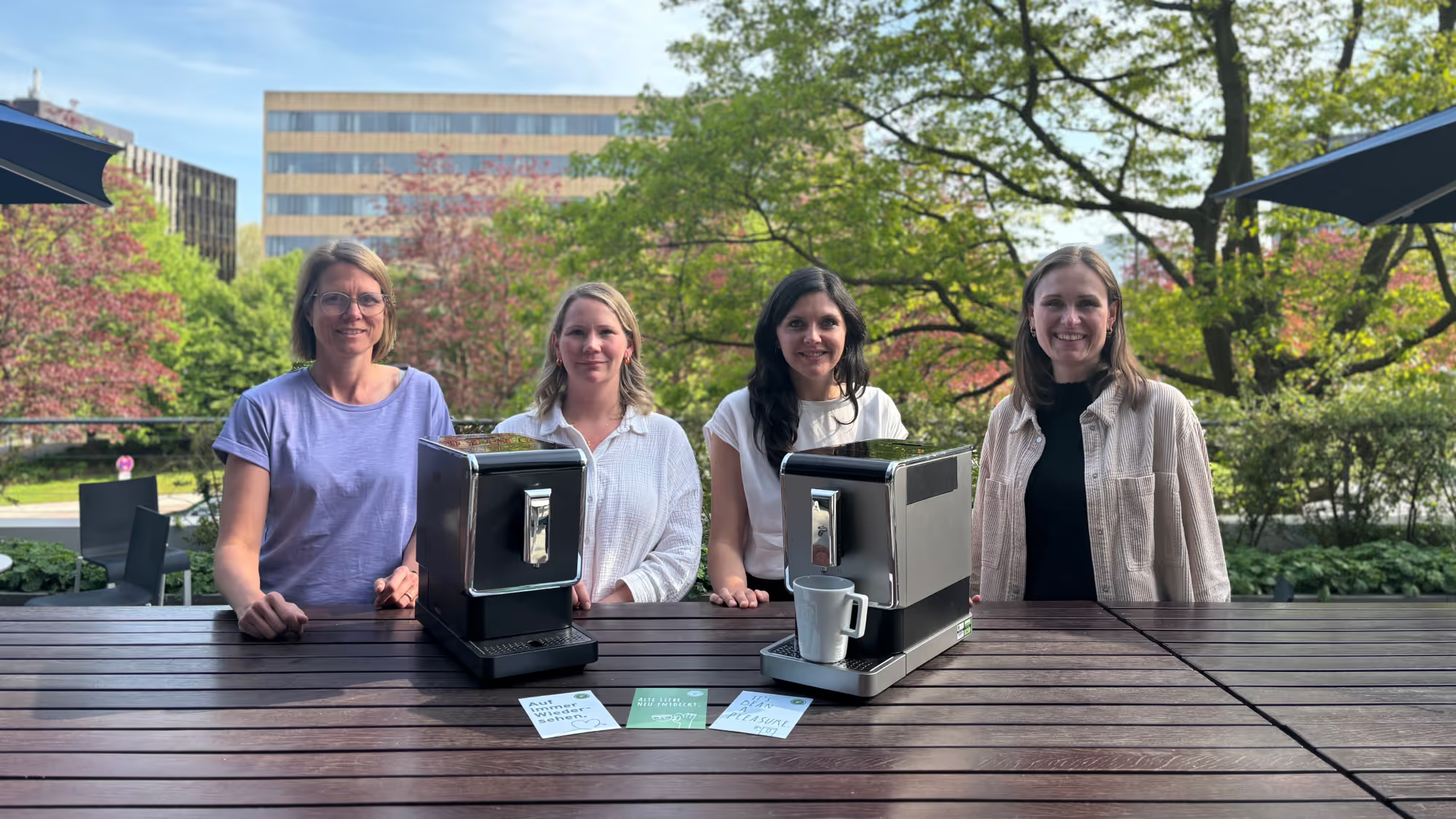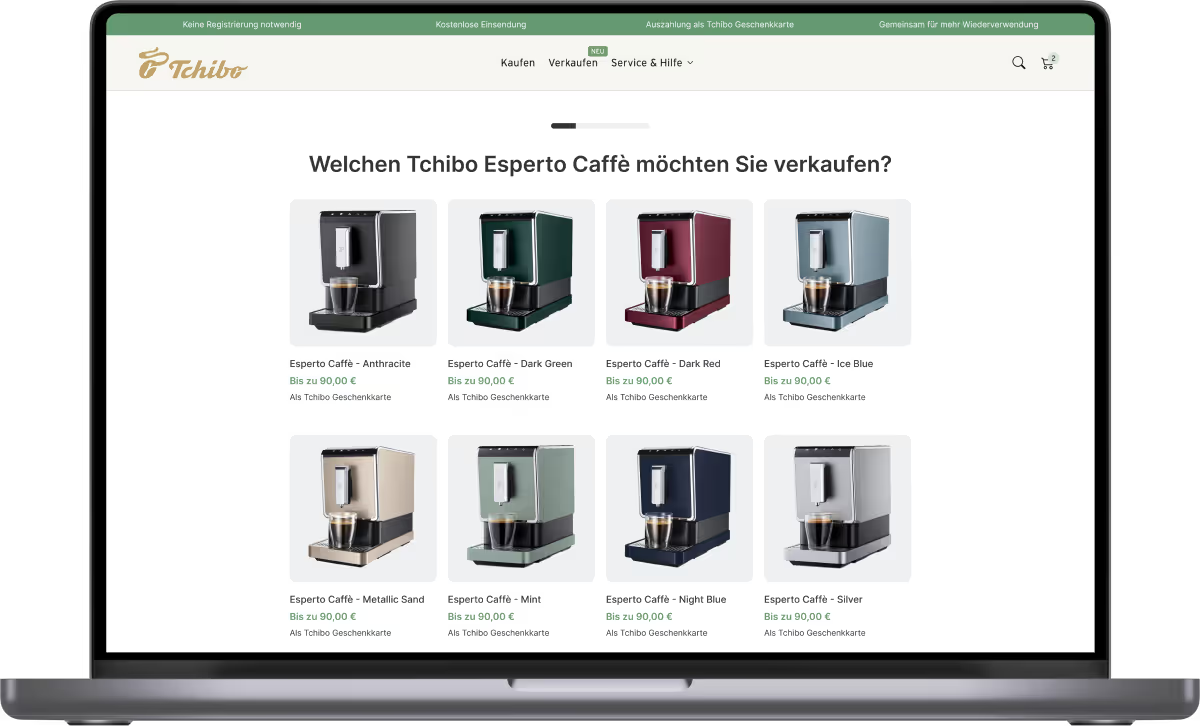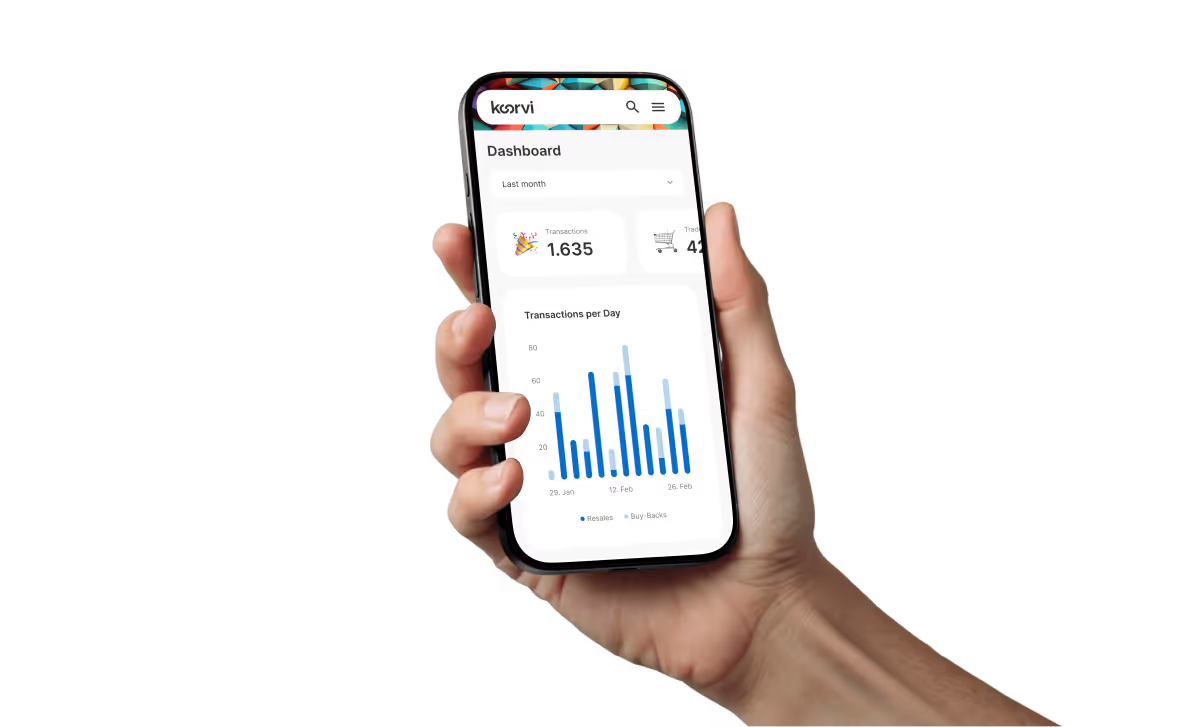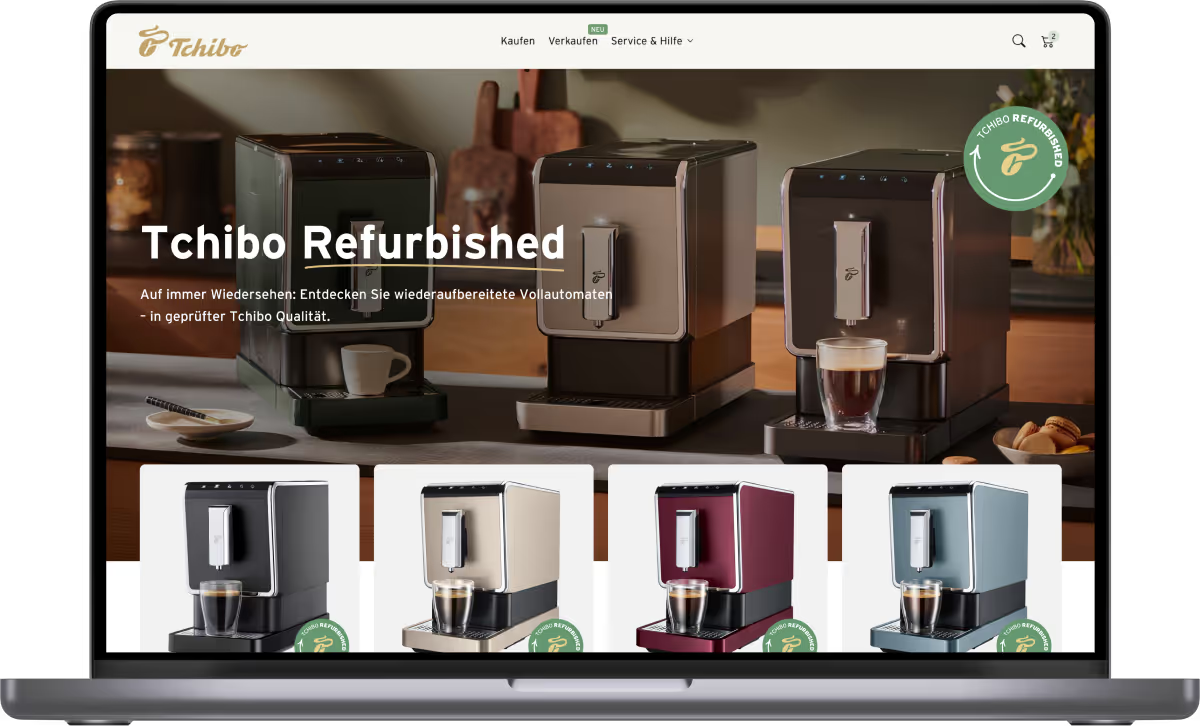- Success Stories
- Learn
- Company
- Contact
Tchibo has been part of people’s morning routines for decades, known not only for good coffee, but also for durable, well-engineered coffee machines. Yet even high-quality products often face the same fate: once a new model hits the shelves, older ones end up sitting unused in cupboards or, worse, being discarded.
As sustainability became an even stronger focus for Tchibo, the team began asking a simple but powerful question:
How can we bring back used machines, refurbish them, and give them a second life — profitably?
The challenge wasn’t about creating something entirely new — it was about unlocking the value already built into every Tchibo coffee machine. Durable materials, reliable components, and a loyal customer base made the perfect foundation. What was missing was a system that could make product take-back and resale as seamless as buying new.
Once the idea was on the table, Tchibo moved fast. The team already had what many brands lack: a reliable product and a trusted repair partner. What was missing was the digital backbone that could connect all steps into one seamless journey: from customers returning their machines, to refurbishment, to resale.
That’s where koorvi came in. Together, the teams designed and launched a fully automated take-back and resale system, built to integrate smoothly into Tchibo’s existing infrastructure.


1. Take-Back Portal
Customers who want to return their coffee machine can do so in just a few clicks via Tchibo’s online Take-Back Portal. Each return is registered digitally, ensuring full transparency from the moment a customer initiates the process.
2. Refurbishment Process
Returned machines are sent to Tchibo’s trusted repair partner, where each one is cleaned, repaired, tested, and certified for resale. koorvi’s platform automatically syncs the status and data of every unit in real time.


3. Refurbished Shop
Once refurbished, the coffee machines are listed for sale in Tchibo’s Refurbished Shop, complete with warranty and full transparency on condition and testing.
The result is a fully digital, circular workflow, that requires no manual coordination, ensures traceability, and scales easily across future product lines. For Tchibo, this partnership meant more than a sustainability pilot — it was the first step toward making circularity part of the brand’s core business model.
When the first refurbished Tchibo coffee machines went live, the response exceeded all expectations. Within weeks, the refurbished shop sold out multiple times, a clear signal that customers were ready for circular products when quality and trust come together.
Since the launch, hundreds of machines have been traded in and refurbished, each one given a second life instead of ending up as waste. The combination of Tchibo’s product durability and koorvi’s process automation proved to be the perfect recipe for success.
Coffee machines, as it turns out, are made for refurbishment. Their robust design, modular components, and long lifespan make them ideal candidates for repair and resale. And because Tchibo’s customers already associate the brand with reliability and care, buying a refurbished model felt like a smart and sustainable choice, not a compromise.
No spam, promise 🙌🏼